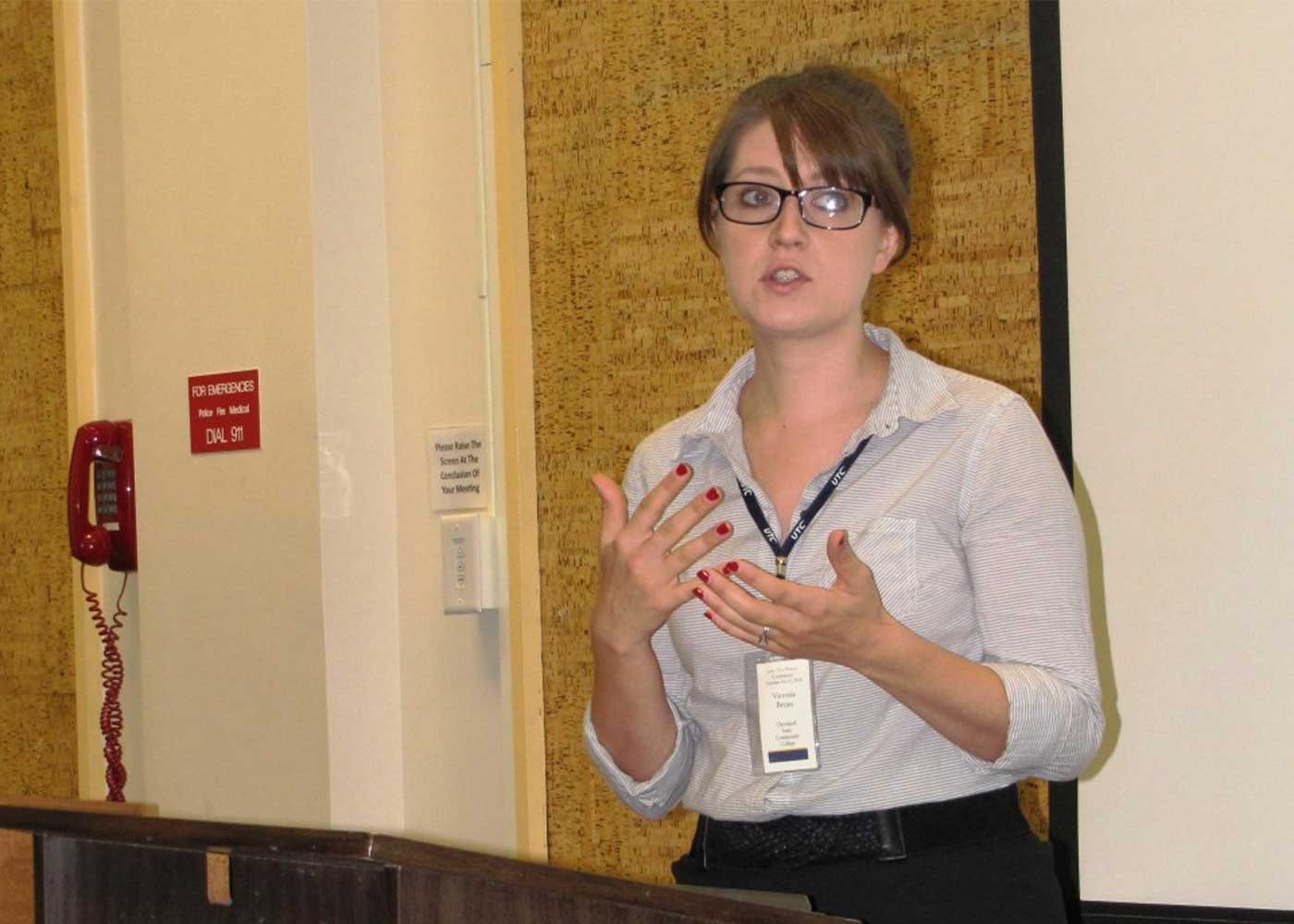Q and A: Victoria Bryan
The John Dos Passos Society, the American academic society devoted to study of his work, is busy preparing for its 2nd biennial conference, to be held in Madrid, Spain in June 2016. I talked recently to the current president of the Society, Victoria Bryan, about what this conference means for the Dos Passos legacy. Thanks to Victoria for offering her time for this dialogue.
Victoria Bryan is one of the co-founders of the John Dos Passos Society. She earned her PhD in English from the University of Mississippi and is an English faculty member at Cleveland State Community College in Cleveland, TN. Her research interests include critical prison study and higher education in jails and prisons. Interview below:
JDPC: How has the John Dos Passos Society grown and evolved?
VB: Since our founding in 2011, we’ve grown astronomically. We’re holding our first international conference in 2016, and our membership has grown to almost 50 people. We’re represented at the American Literature Association on a regular basis, and we’re able to sponsor panels at various regional conferences.
JDPC: What are your hopes and expectations for the Madrid conference?
VB: Our conference in Chattanooga was an invigorating event marked by complex conversation about Dos Passos’s work and legacy. We hope that we can draw on that energy for Madrid while also drawing on the influence Spain had on Dos Passos’s written and visual art.
JDPC: What were the most successful aspects of the Chattanooga conference?
VB: I always enjoy our teaching panels. They introduce so many avenues for bringing Dos Passos into the classroom, which may be one of the most powerful ways to bring an author’s work to a new generation. We also had a really successful business meeting, during which we elected new officers and recruited members for our advisory board. Not to mention the amazing papers we heard throughout the weekend.
JDPC: What did you present on at the Chattanooga conference?
VB: I presented a paper on Dos Passos’s involvement with prison writing and representations of prison during the 20s, 30s, and 40s. As I’ve continued researching the topic, I have things I’d certainly change about the paper, but the idea that Dos Passos struggled with how the U.S. prison system worked, particularly in relation to political prisoners, was a huge takeaway from my time in the Dos Passos archives at the University of Virginia in 2014. I was excited to be able to present on those findings.
JDPC: Have you been to Spain before? What is your understanding of Spain from the works and life of Dos Passos?
VB: I haven’t! A few months before our conference, I’ll be taking a group of students to Barcelona, Madrid, and several other cities in Spain over spring break, so I’ll get two opportunities to read Dos Passos in that context and explore the land he was so inspired by. It’s going to be an exciting year!
JDPC: What was the last article or book by Dos Passos that you read and why?
VB: I’ve been re-reading the archival documents from UVA on prisons, particularly those that relate to Eugene Debs’ imprisonment, which Dos Passos seems to have been particularly troubled by. (In a somewhat related vein, I’ve been reading Eugene Debs’ Walls and Bars about his political beliefs, his prison time, and his run for Presidential office while incarcerated.) I’m hoping to develop my ideas about Dos Passos and prison writing further for more lengthy writing projects.
JDPC: You have taught at prisons and studied criminal justice . What lessons do you take away from Dos Passos on crime and justice?
VB: Dos Passos wrote very passionately about political freedom, and was adamantly opposed to the execution of Sacco and Vanzetti. His writing about these topics is powerful. I’ve often used his poem published in The New Masses “They Are Dead Now” in writing and lit classes in prison and in the free world to demonstrate that writing by and about incarcerated people deserves a place in our canon.
JDPC: What new (published his year or last year) book do you recommend and why?
VB: I’m currently reading Margaret Atwood’s The Heart Goes Last. It’s about a devastating financial recession that leads to many losing their homes and livelihoods. The solution to this problem is to allow people to move into posh neighborhoods that have been abandoned, but they only get to live there half the year. The other half of the time they have to live in the local prison. It sounds so dystopian, but for many in our country and around the world, this isn’t so far from reality.

